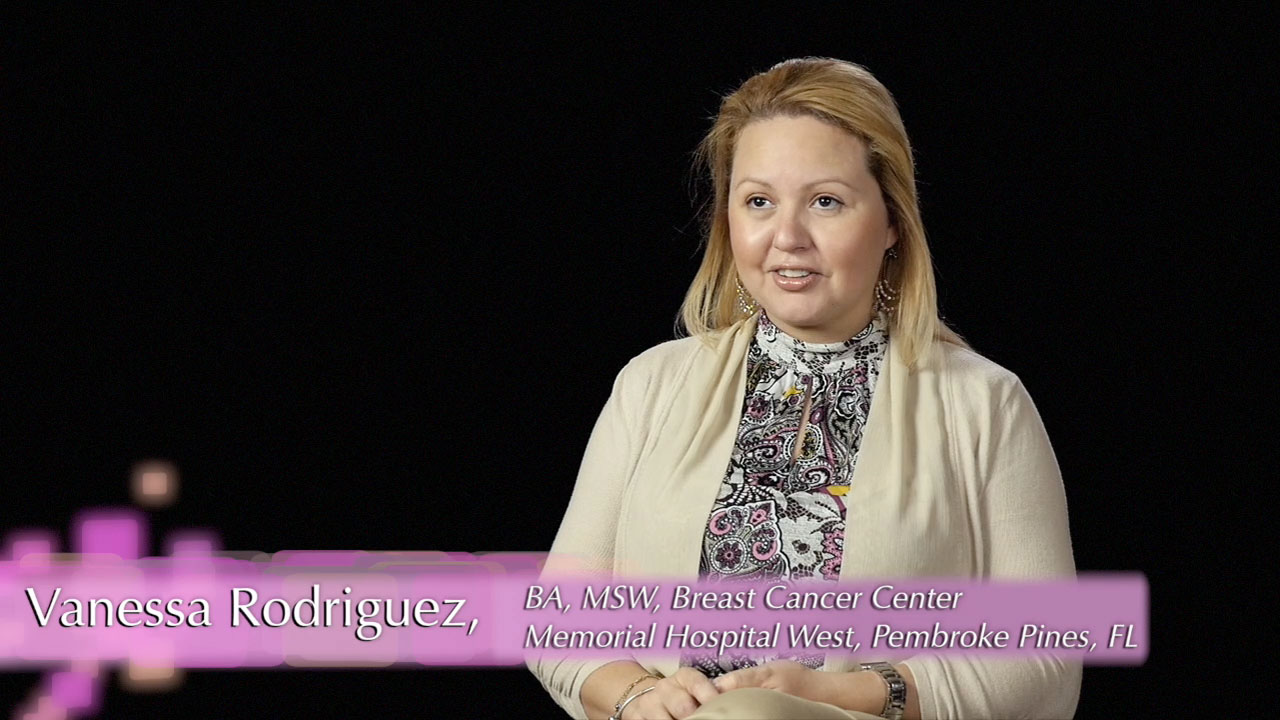Patient Advocacy/Empowerment
Katie Narvarte and JaLisa Boyd discuss how they advocate for the patient and communicate the patient's needs to the rest of the healthcare team.
Vanessa Rodriguez always puts the patient first.
Navigation & Survivorship News published on April 2, 2015 in Insights into Navigation, Patient Advocacy/Empowerment
This is a very important subject that needs to be discussed more often. Of all of the tasks of a navigator, patient advocacy must always be part of our process.
Navigation & Survivorship News published on December 18, 2014 in Plus Pointers, Patient Advocacy/Empowerment
While patient navigators often serve as patient advocates on the health care team, encouraging patients to advocate for themselves is of equal importance.
Articles & White Papers published on January 30, 2014 in Patient Advocacy/Empowerment
When someone has just heard in the last day or so that they have cancer, their life is in a tailspin. So when I ask a patient, “Before you heard that you had cancer, what were your life goals?” commonly the response is, “It doesn’t matter what they were. Just please save my life.” But it does matter, because we should be striving to incorporate those life goals into the patient’s treatment planning process.
Articles & White Papers published on August 16, 2013 in Patient Advocacy/Empowerment
Commonly, when someone hears the words “you have cancer,” their mind can focus on nothing else. The world promptly begins to spin out of control. They are no longer thinking about what was on their to-do list today, or this week, or this month for that matter.
There are various points along the journey that we, as nurse navigators, need to be at the side of our patients when critical treatment decisions are being made. This is something that you do every day, and are more than familiar with regarding your role in education and support as it relates to this type of decision making.
Commonly when a breast cancer nurse navigator is educating and supporting a patient, the time period is focused on the point of diagnosis through their acute treatment. How do we really know if the patients, now as survivors, believe the right decisions were made regarding treatment options? How do we know they felt the decisions were made with their active input? Were they confident in their choices?
Articles & White Papers published on October 12, 2011 in Breast Cancer, Patient Advocacy/Empowerment
It is interesting to read or see opposing views on an issue in medical care. Healthcare professionals do a wonderful job on quoting facts and research findings. What is normally missing is the voice of the patient.
Page 5 of 5
Results 41 - 49 of 49
Results 41 - 49 of 49
Thank You to Our Corporate Sponsors and Alliance Partners!

Major Corporate Sponsor

Patron Corporate Sponsor

Patron Corporate Sponsor

Patron Corporate Sponsor

Industry Relations
Council Member

Industry Relations
Council Member

Industry Relations
Council Member

National Alliance Partner

National Alliance Partner

National Alliance Partner

National Alliance Partner

National Alliance Partner

National Alliance Partner
Privacy Notice | Terms of Use
© 2009- DBA AONN+ Academy of Oncology Nurse & Patient Navigators® | PO Box 357387, Gainesville, FL 32635-7387 |
AONN+ DBA AONN+ is a 501(c)(6) organization under federal tax guidelines. AONN+ Foundation for Learning, Inc. a 501(c)(3) organization under federal tax guidelines.
AONN+ Advantage, LLC, a wholly owned subsidiary of AONN+.




